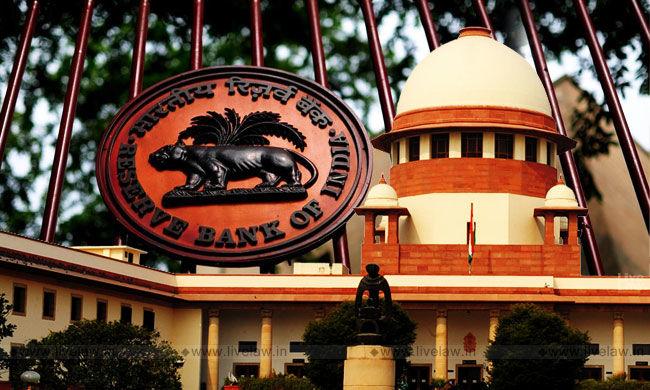SC Tells RBI to Release Defaulters’ List, Inspection Reports Under RTI

In a big boost to transparency, the Supreme Court of India has directed the Reserve Bank of India to disclose willful defaulters list and annual inspection reports under RTI.
The Bench comprising Justices Nageswara Rao and MR Shah was delivering the judgment in a contempt petition filed by RTI activist Subhash Chandra Agrawal against Reserve Bank of India (RBI) alleging willful disobedience to the specific directions issued by the court in Reserve Bank of India Vs Jayantilal N Mistry and others.
In the Jayantilal N Mistry case, the Supreme Court had held that RBI is bound to disclose information under the RTI Act. The bench has given one last opportunity to RBI to comply with the Jayantilal N Mistry and also warned RBI that any further violations of SC's order will result in serious contempt of court proceedings.
The petition moved through advocates Prashant Bhushan and Pranav Sachdeva said the RBI issued a 'disclosure policy' directing its Public Information Officers (PIOs) to not disclose virtually all information, even the kind of information directed to be disclosed by the Supreme Court.
"The said policy states how the RBI headquarter has decided not to disclose information with regards to applications received under the Right to Information Act 2005, in clear violation of the judgment of this Hon'ble Court," the petition stated.
The Supreme Court in Reserve Bank of India Vs Jayantilal N.Mistry and others had directed disclosure of information sought for under the RTI Act relating to individual banks regulated and supervised by the RBI.
The central bank had earlier refused to disclose such information on the grounds of economic interest and holding such information in fiduciary relationship with these individual banks. The Supreme Court rejected the grounds for denial of information as baseless and directed the RBI to disclose information sought by the RTI applicant in that case.
It was held that the RBI was not in fiduciary relation with these individual banks, as it did not hold such information in 'trust' with such banks. Further, withholding rather than disclosing of such information would be detrimental to the economic interest of the nation, it held.
Get the latest reports & analysis with people's perspective on Protests, movements & deep analytical videos, discussions of the current affairs in your Telegram app. Subscribe to NewsClick's Telegram channel & get Real-Time updates on stories, as they get published on our website.
























